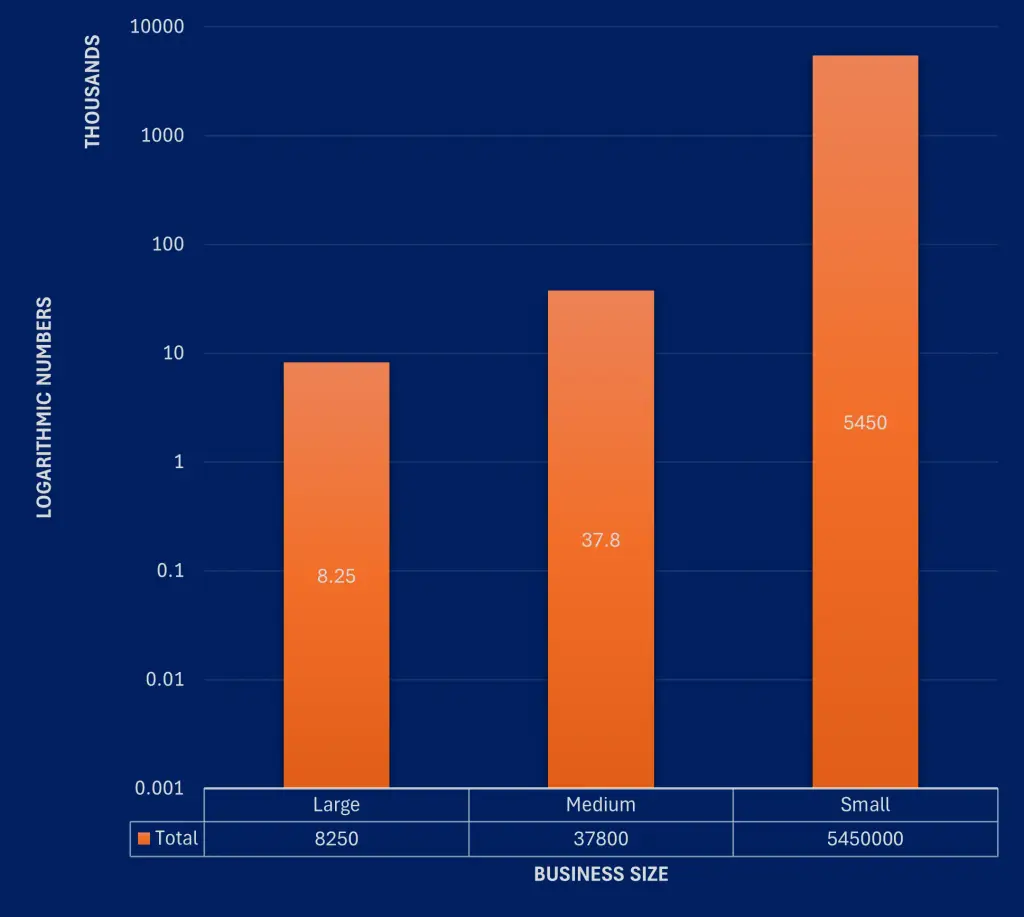The Power of Data Analytics for Small Businesses in the UK

According to the Business Population Estimates for the UK and Regions 2024, an overwhelming 99% of businesses in the UK are classified as small businesses, defined as those with fewer than 50 employees. These enterprises span across various sectors, from boutiques and local retail shops to start-ups and service-based providers. This statistic not only highlights the foundational role small businesses play in the UK economy but also reflects the significant potential for innovation, growth, and impact within this sector.
However, while small businesses dominate in number, many of them face a common set of challenges, such as limited resources, fluctuating customer demands, tight profit margins, and increasing competition from both local and online platforms. Despite these hurdles, every small business shares a core ambition: to grow and thrive.
Growth doesn’t happen by accident. It requires strategic planning, continuous improvement, and most importantly, informed decision-making. One of the most powerful tools a business can use to achieve this is data analysis.
Why Small Businesses Must Embrace Data Analytics
It’s not uncommon for small business owners to assume that data analytics is something reserved for large corporations with big budgets and dedicated IT departments. However, that perception is rapidly becoming outdated. In today’s digital age, data is everywhere, and every business, no matter how small, generates it in one form or another.
From customer purchases and website visits to inventory changes and seasonal trends, small businesses constantly accumulate valuable information. The real question is: Are they using that data to their advantage?
Without analysing this data, decisions are often made based on assumptions, gut feelings, or limited observations. While this might work occasionally, it is not a reliable strategy for sustainable growth. A boutique might assume its customers prefer floral prints over solid colours simply because those styles sell out quickly, but without data, it can’t determine whether it’s due to popularity, limited stock, or seasonal demand.
Data analytics changes this. It helps businesses understand not only what is happening, but why it’s happening, and more importantly, what to do next.
Turning Raw Data into Business Insights
Let’s consider a simple example: a small kebab shop in London. They offer chicken and lamb doner, and they’re turning a steady profit. But they have no real understanding of what’s driving those profits. Is it the chicken that customers prefer? Do most customers come in during lunch breaks or weekends? Are certain sauces more popular? Are returning customers driving repeat business, or is the foot traffic mostly one-time visitors?
By collecting and analysing data from sales receipts, customer reviews, and purchasing patterns, the shop owner can begin to answer these questions:
- Customer preferences: Which items are most frequently purchased? Which combinations are popular?
- Time trends: What times or days show peak business?
- Customer loyalty: How many customers return? Are there discounts or loyalty programs that could encourage repeat visits?
- Inventory management: Is food being wasted or running out too soon? How can supply be optimised?
With these insights, the owner can make better business decisions, such as stocking more of the popular ingredients, creating combo offers that align with customer preferences, or extending hours during peak times. These may seem like small changes, but over time, they can significantly impact the bottom line.
Data-Driven Decisions equals Smart Business
Now imagine this approach applied across thousands of small businesses, from jewellery stores that need to know their peak sales seasons, to coffee shops trying to identify the most profitable drinks, to service-based start-ups refining their marketing strategy.
Here are some practical areas where data analytics helps small businesses:
- Customer Insights
Understand who your customers are, what they want, and how they behave. This helps in refining marketing strategies, improving products, and creating better customer experiences. - Sales Trends
Identify patterns in your sales data to forecast demand, manage inventory, and plan for busy periods or slowdowns. - Operational Efficiency
Streamline processes by identifying bottlenecks, reducing waste, and optimizing staff schedules or delivery routes. - Marketing Effectiveness
Track which campaigns generate the best ROI, what platforms drive engagement, and which customer segments respond the most. - Financial Management
Monitor cash flow, profitability, and expenses in real-time, enabling faster, smarter financial decisions.
At Global Datai, our mission is to empower small businesses by unlocking the insights hidden in their data. We understand the struggles small business owners face because we’ve built our services around simplicity, affordability, and actionable results.
Our approach focuses on working with businesses at their level, whether you run a stall at a weekend market or manage a small chain of stores. We help you understand your data in plain English, and we present it in ways that directly relate to your goals: increased profit, better customer experience, and sustainable growth.
Moving Toward a Data-Driven Future
In an economy increasingly driven by information and technology, ignoring data is no longer an option. Small businesses must adapt or risk falling behind. The businesses that thrive in the coming years will be those that know their customers deeply, adapt quickly to trends, and make decisions based on evidence rather than guesswork.
Data doesn’t just tell you what’s happening, it tells you why, and what to do about it. It turns uncertainty into clarity and transforms challenges into opportunities, analysing, colours
At Global Datai, we believe that small businesses should not be left behind in the data revolution. We’re here to guide you, support you, and equip you with the insights you need to grow.
So, if you’re a small business owner wondering whether it’s worth diving into your data, the answer is clear: yes, and we’re here to help you do it the right way.
